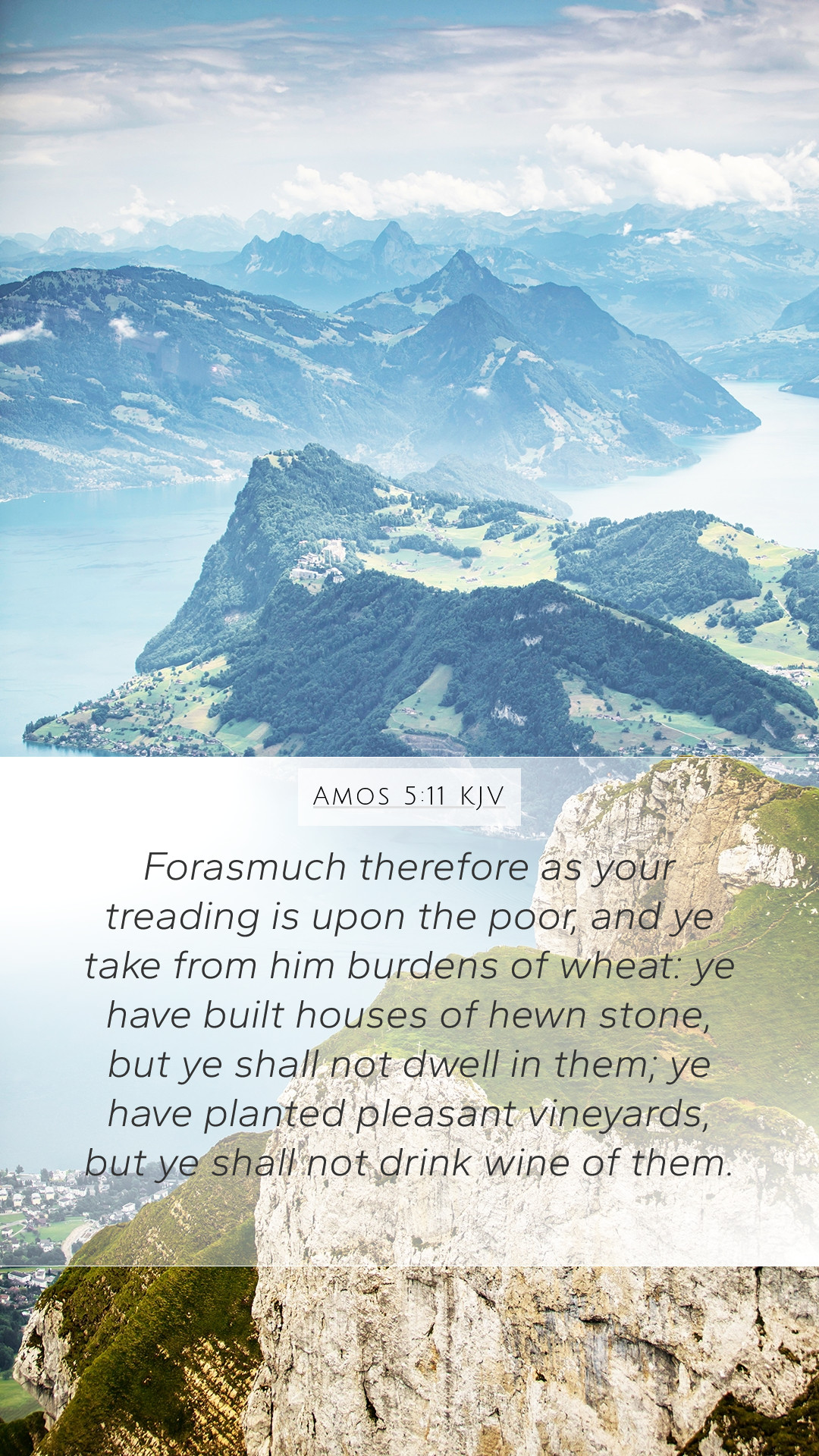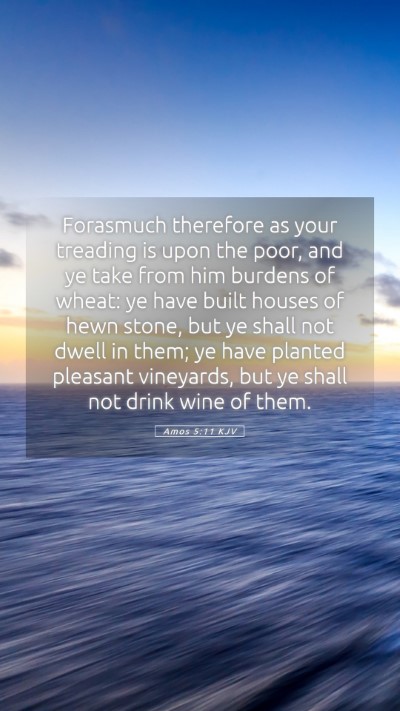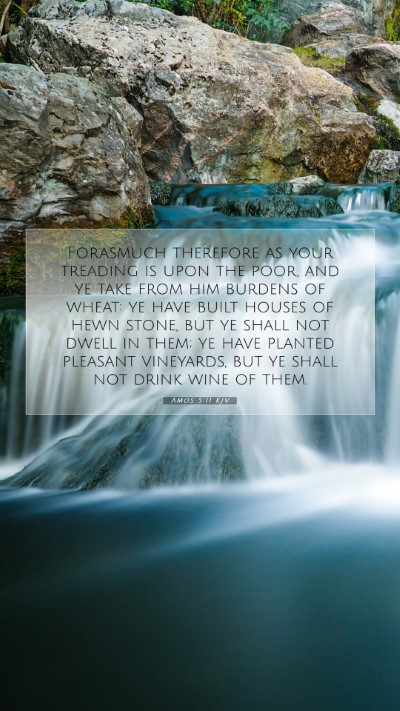Old Testament
Genesis Exodus Leviticus Numbers Deuteronomy Joshua Judges Ruth 1 Samuel 2 Samuel 1 Kings 2 Kings 1 Chronicles 2 Chronicles Ezra Nehemiah Esther Job Psalms Proverbs Ecclesiastes Song of Solomon Isaiah Jeremiah Lamentations Ezekiel Daniel Hosea Joel Amos Obadiah Jonah Micah Nahum Habakkuk Zephaniah Haggai Zechariah MalachiAmos 5:11 Meaning
What is the meaning of Amos 5:11?
Forasmuch therefore as your treading is upon the poor, and ye take from him burdens of wheat: ye have built houses of hewn stone, but ye shall not dwell in them; ye have planted pleasant vineyards, but ye shall not drink wine of them.
Amos 5:11 Bible Verse Meaning
Understanding Amos 5:11
Amos 5:11 is a potent verse within the prophetic literature of the Old Testament, encapsulating themes of social justice and divine judgment. As we delve into the Bible verse meanings and explore the Bible verse interpretations through commentaries like those from Matthew Henry, Albert Barnes, and Adam Clarke, we uncover layers of insight that enhance our Bible study insights.
Text of the Verse
"Forasmuch therefore as your treading is upon the poor, and ye take from him burdens of wheat: ye have built houses of hewn stone; but ye shall not dwell in them; ye have planted pleasant vineyards; but ye shall not drink wine of them." - Amos 5:11 (KJV)
Context of the Verse
This verse is situated in a larger discourse where Amos is prophesying against Israel, addressing their corrupt practices and the social injustices rampant among them. It highlights God's discontent with the oppression of the poor and the superficiality of the nation's piety.
Analysis of Key Themes
- Social Injustice: Amos criticizes the affluent class for exploiting the poor, emphasizing that their wealth comes at the expense of the less fortunate. Both Matthew Henry and Albert Barnes stress that God sees these injustices.
- Divine Judgment: The threats of God’s judgment for these sins are clear. Adam Clarke points out that despite their material successes, the people will not enjoy the fruits of their labor because of their unrighteousness.
- Temporary Gains: The idea that they have built houses and planted vineyards only to lose them speaks to the futility of gaining at the expense of others, a theme emphasized in biblical exegesis.
Commentary Insights
Matthew Henry's Commentary
Henry notes that the act of "treading upon the poor" symbolizes the oppression and exploitation endemic in society, illustrating a deeper spiritual malaise. He emphasizes that God does not regard their worship while they perpetrate such injustices.
Albert Barnes' Commentary
Barnes highlights the contrast between the opulence of the Israelites and their moral decay. He indicates that God's declaration of impending judgment is a call for repentance and a return to justice.
Adam Clarke's Commentary
Clarke connects the notion of material loss with spiritual degradation, indicating a reciprocal relationship where disregard for justice leads to loss of God’s blessings. He clarifies that while they may have built homes, they will not reap the benefits of their labor due to their sins.
Application of the Verse
In modern contexts, Amos 5:11 serves as a powerful reminder of the importance of justice and compassion in socio-economic dealings. It challenges believers to align their practices with biblical principles, ensuring that their pursuits do not come at the expense of the poor and marginalized.
Cross References
- Isaiah 3:14-15: A parallel warning against the exploitation of the poor.
- Micah 6:10-12: Critiques of dishonest measures and greed.
- James 5:1-6: New Testament admonition regarding the rich oppressing the poor.
Conclusion
The examination of Amos 5:11 through various Bible study tools and commentaries deepens our Bible verse understanding. It prompts vital questions about justice, accountability, and divine expectation of His people. For anyone interested in understanding Scripture, this verse remains a poignant reminder of the moral imperatives in faith and practice.


